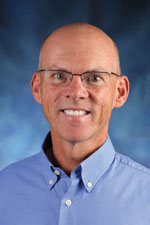I am fortunate to lead the Church Consulting & Revitalization Team at the Kentucky Baptist Convention. This team consists of a group of multi-talented overachievers, to say the least. Several team members hold earned doctorates, some have published books, but all are viewed as experts in certain areas of church life.

So, how do you lead a team like this?
Let me first say that there is no one correct way. Several methods could prove successful, but here’s my approach.
4 keys to leading a high-powered team
1. Be yourself. In order to lead a team like ours, I must be comfortable in my own skin! I can’t try to match up to the superstars on the team. I just need to be who God made me to be. Team members of this caliber will see through a fake leader in a heartbeat! Personally, I am a relational guy. As a result, I lead through relationships instead of through authority. If I need to show authority, I am willing to do so, but it’s not the approach that fits my personally. Rarely do high-powered team members need to be shown authority. They work hard and show respect because that’s who they are and that’s how they have reached their current level of success.
2. Let team members be themselves. When I’m comfortable being who God made me to be, it helps team members to be comfortable with who God made them to be. Each member of our team is different, uniquely gifted. I try to get to know them and meet them where they are. Of course, I don’t have different expectations or requirements—there must be consistency in certain areas, but I give each member space to approach their work in a way that matches them.
3. Stay out of the spotlight. I’ve heard it said that a leader “shares” the spotlight. My approach is to “stay completely out of” the spotlight when possible. Instead, I try to spotlight our team members. Why would I need to be in the spotlight when I have a team of superstars? Why would I want to do that when I desire to model a team core value of teamwork and putting others first? Certainly, there are times when the team leader must be up front, but I limit those times as much as possible. As often as I can, I put others in the spotlight and on the microphone.
4. Be honest. Even superstars need feedback, coaching, and occasional correction. Typically, it’s “big picture” coaching. An NBA superstar like Kevin Durant doesn’t need to be coached on his shot follow through, but he does need coaching on how he fits into the overall team strategy. He needs to know the objective and the strategy for success. I try to be as honest as possible with team members and, of course, I reserve individual corrections for private settings. I have found that my team members are very open to suggestions on how they can be more effective. I also seek their input on how I can be more effective as well.
Steve Rice is team leader of Church Consulting and Revitalization of the Kentucky Baptist Convention.
Steve Rice